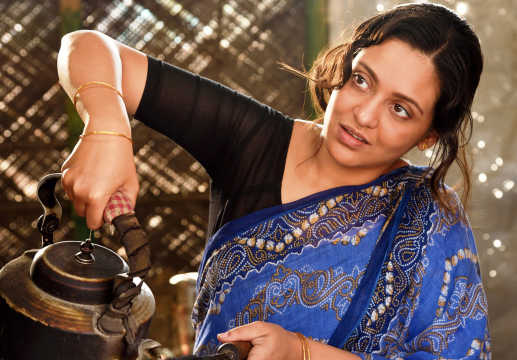
Sonal Pandya
Mumbai, 28 Sep 2018 22:00 IST
Four shorts stories make up writer-director Arnab Middya’s exploratory first film, based on real events representing womenhood.

Daughter, sister, friend, wife. In every relationship, the 'Indian woman' sacrifices herself to the point where she forgets her own identity. In Arnab Middya’s first film, Andarkahini (Self-Exile), actress Priyanka Sarkar steps up to tell the story of four different women – Priyanka, Bulti, Laxmi and Priya – and their eternal struggle for identity in a patriarchal society.
The film is divided in four segments where Sarkar takes up the role of each woman defined by her circumstances. It begins with Priyanka’s rejection of her boyfriend Anindya’s (Anindya Chatterjee) proposal of marriage. Heartbroken yet determined, the young woman is steadfast in her refusal to marry as she is a devoted daughter to her ailing father. We move on from Priyanka’s tragic life without a resolution to her situation.
Yet another woman with devotion to her family is Bulti. The young woman works with her brother Bhodor (Sumit Samaddar) at their tea stall and the duo live in a humble abode nearby. However, the lecherous and menacing Rajesh (Rajesh Sharma) threatens them to give up their home so new apartments can be made on the valuable land.
After the death of their parents, the siblings only have each other and their home. Bhodor files a police complaint upon Rajesh’s repeated threats of eviction, but is afraid to open the door when Rajesh comes knocking for a reckoning. He sends Bulti to handle him, to disastrous and devastating results.
Naive and guileless Laxmi lives in a small hut on the outskirts of Kolkata. A young medical student and budding photographer (Saayoni Ghosh) reaches Laxmi's home asking for water. The two women bond, sharing life experiences, and learning each other’s situations. Laxmi admires the young woman’s independence, while the city girl marvels at Laxmi’s grit after being thrown out of her husband’s home and leaving her brother’s house.
The two women share a tender moment after it is discovered that Laxmi is injured. But new and conflicting revelations do not soothe either one, in fact, it raises more questions than either of them can answer.
In the final and the longest short of the anthology, the relationship between a husband and a wife, about to celebrate their fifth wedding anniversary, is explored. The loving couple, Prasun (Prasun Gayen) and Priya (Sarkar), is going through a tough phase. Prasun has been out of a job since six months and their savings have been exhausted. Priya does what she can to keep the household running.
But with their fifth anniversary fast approaching, both Prasun and Priya take desperate measures to earn money. Ignoring their inner conscience, they take up assignments they would otherwise balk at. In the end, even though they’ve got each other, they’ve lost a part of themselves forever.
Middya’s independent film, yet unreleased in India, was made on a small budget and shot over 10 days on mostly real locations. The filmmaker based his anthology on real-life events and shaped it into the different struggles women face even now in society.
Each scenario presented shows the dilemmas of each character — Priyanka, Bulti, Laxmi and Priya — and as they are left in their sorry state, they continue on, trapped, in their personal agonies. But such is the reality of many women across India and the world, fighting their own battles in a patriarchal world.
Andarkahini belongs to Priyanka Sarkar as she embodies each woman. From the young Priyanka, rejecting a chance at personal happiness, to the super supportive wife Priya, the actress changes herself for each character. Her appearance, voice and acting reflect the struggles of them all.
The rest of the cast do justice to their parts, some clichéd, some not. Veteran Bengali actor Soumitra Chatterjee appears in a brief cameo.
The casting of Sarkar by Middya is a deliberate choice, indicating the uphill struggle of women to get their voices to be heard in their own lives. They sacrifice their own wants and desires for life over the demands of men. This cycle will be never be never-ending, until something impactful stops it. The film doesn’t explore how that can be achieved, instead it shows the festering wound from within.
The film was screened at the 9th Jagran Film Festival in Mumbai on 27 September 2018.
Related topics
Jagran Film FestivalYou might also like

Review Bengali
Kuler Achaar review: Half-baked screenplay makes this drama film a tedious watch
Directed by Sudeep Das, the film, which critiques the patriarchal mindset, boasts a by Indrani...

Review Bengali
Shrimati review: Despite sincere message about self-love, this drama is a one-time watch
Directed by Arjunn Dutta, the film celebrates homemakers' choice to live life on their own terms...

Review Bengali
Aay Khuku Aay review: A melodramatic tale of a father and daughter's struggle with poverty
Actress Ditipriya Roy and Indranil Mukherjee’s cinematography shine in this outdated film by...

